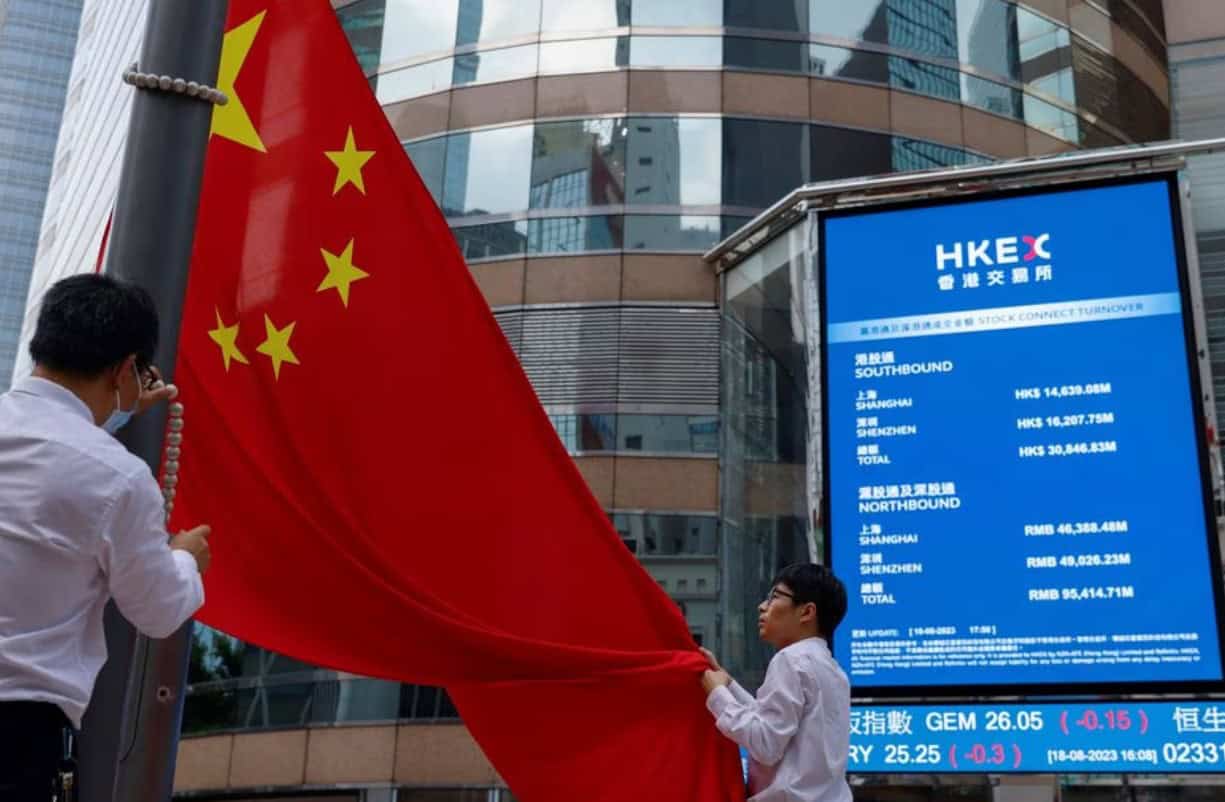Asian equities rose slightly on Tuesday, to stand just off their lowest since November 2022, while the dollar eased as traders avoided bets ahead of economic data expected to offer clues to the next steps by the U.S. Federal Reserve.
Oil prices recovered some of the previous day’s losses as markets worried that the Israel-Hamas war could escalate into a wider conflict in the oil-exporting region.
MSCI’s broadest index of Asia-Pacific shares outside Japan (.MIAPJ0000PUS) reversed losses to trade 0.41% higher at 476.72, off a prior level of 472.73, the lowest since November 2022.
Down 3% for the month, the index is set for a third consecutive month in the red. Japan’s Nikkei (.N225) was up 0.21% after an earlier slide of as much as 1.4%.
Futures showed European stocks poised to open lower, with the Eurostoxx 50 futures down 0.10%, German DAX futures down 0.11% and FTSE futures 0.16% lower.
“The looming spectre of inflation grows even more imposing, especially considering the recent sharp ascent in oil prices,” said Dalma Capital Chief Investment Officer Gary Dugan.
“If oil prices persist at this level throughout the rest of 2023 and into 2024, this could potentially inject another bout of inflation into the global economy.”
Investor attention will be split this week between the earnings of high-profile companies, such as Microsoft (MSFT.O), Facebook parent Meta Platforms (META.O) and Amazon (AMZN.O), as well as a slew of economic data ahead of the Fed’s meeting from Oct. 31 to Nov. 1.
The U.S. Commerce Department will announce third-quarter gross domestic product on Thursday, while the Personal Consumption Expenditures (PCE) report, the U.S. central bank’s preferred inflation gauge, is due on Friday.
But before that investors will parse the flash purchasing managers’ index (PMI) data from Britain, France, the Euro zone and the United States due later on Tuesday.
The data barrage precedes central bank meetings in the next two weeks, with the European Central Bank set to meet on Thursday and expected to keep rates steady, a Reuters poll of 85 analysts shows.
“It’s already reasonable to suggest that the ECB won’t move on rates this week, with the October flash PMIs merely serving to underscore how weak the European economy remains,” said Michael Hewson, chief market analyst at CMC Markets in London.
China shares stayed under pressure, with Hong Kong’s Hang Seng Index (.HSI) sliding 0.68%, although the Shanghai Composite Index (.SSEC) rose 0.32%.
China’s blue-chip CSI300 Index (.CSI300) was flat after closing on Monday at its lowest in 4-1/2 years.
Investor confidence kept weak even after state fund Central Huijin bought exchange-traded funds to bolster the flagging market.
The yield on the benchmark 10-year U.S. Treasury note was up 0.80 basis point at 4.846% in Asian hours on Tuesday, following the previous day’s quick decline after a brief rise above 5.0%.
The run-up in yields on the 10-year Treasury note, seen as a safe haven in times of economic uncertainty and a benchmark for global borrowing costs, has been driven in part by investors pricing in stronger U.S. growth.
On Monday, billionaire investor Bill Ackman said he covered his previous bets against Treasuries, in expectations that the Israel-Hamas war would push more investor dollars towards U.S. Treasuries.
In the currency market, the dollar was soft against a basket of currencies , after Monday’s drop of 0.5%. The dollar index was 0.076% lower at 105.52.
The yen remained under pressure but took some relief from the dollar’s retreat.
The Japanese currency was last at 149.74 per dollar, having hit the key level of 150 on both Friday and Monday, which markets view as having the potential to spur an intervention by authorities to prop up the currency.
In cryptocurrencies, bitcoin was back in vogue as speculation about the possibility of an exchange-traded fund drove enthusiasm and prompted short-sellers to exit positions.
The world’s biggest cryptocurrency traded as high as $35,198, touching an 18-month peak, before easing to $34,427, up 4% on the day.
In commodities, U.S. West Texas Intermediate crude futures rose 0.32% to $85.76 per barrel, while Brent was up 0.33% on the day at $90.13.
Spot gold added 0.2% to $1,975.49 an ounce.

